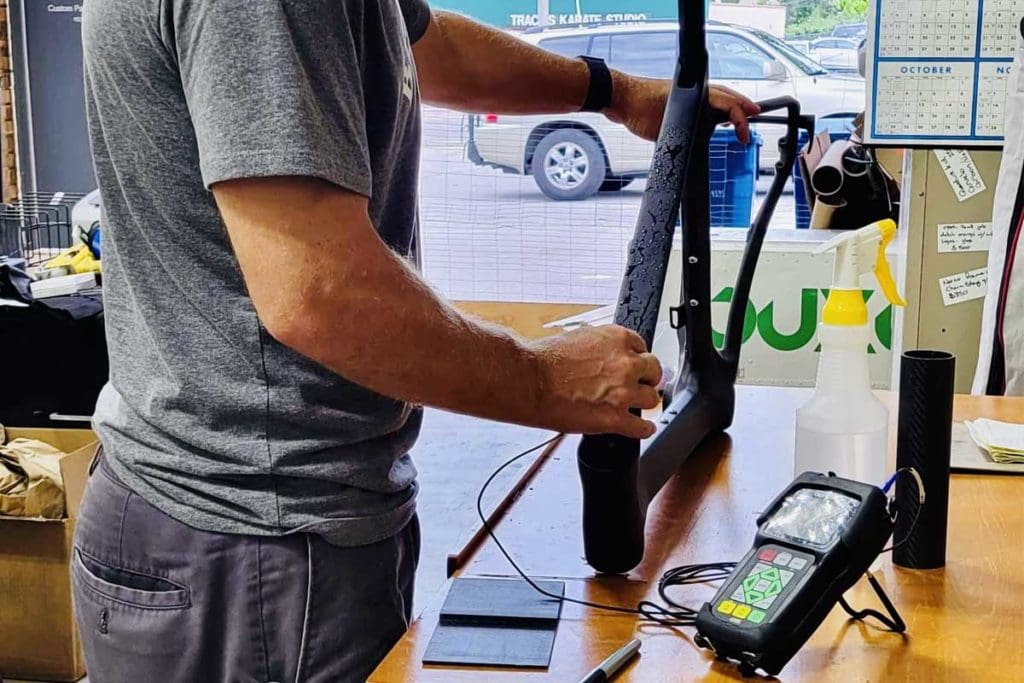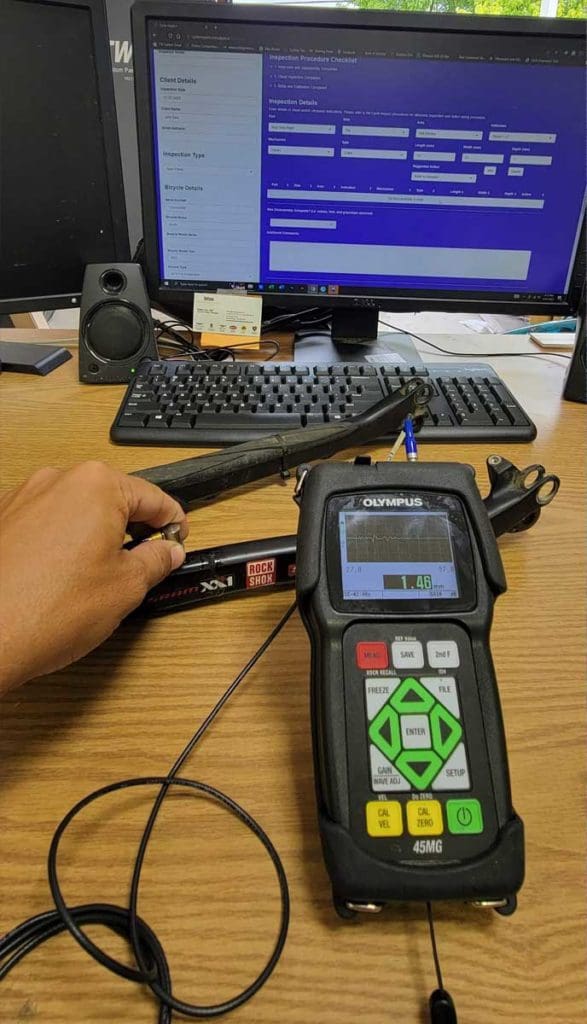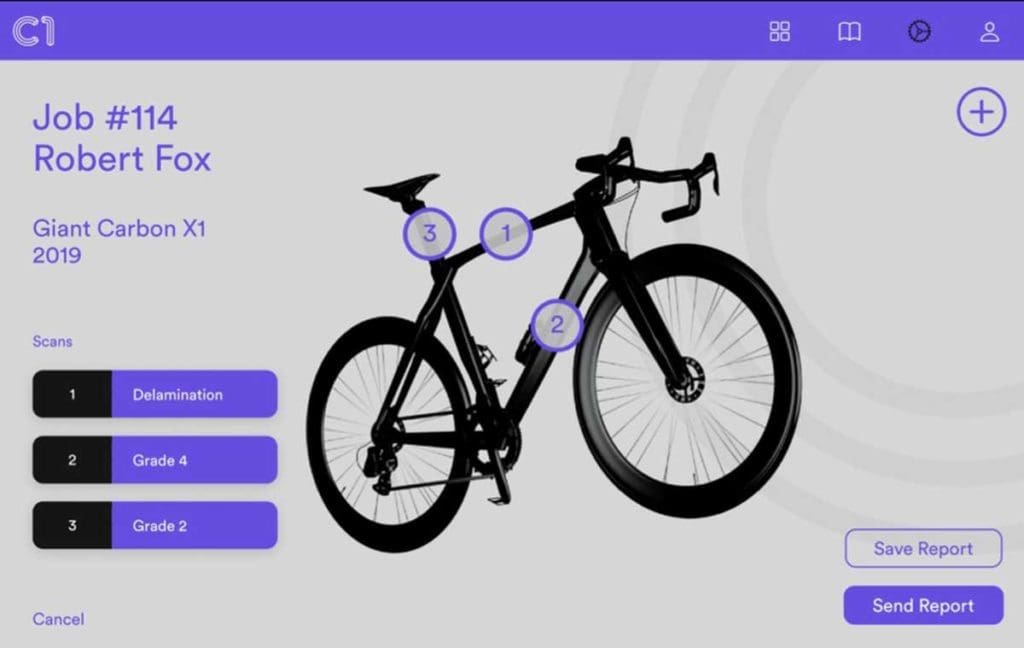Unlock the power of in-house carbon inspection with Cycle Inspect

~ Sponsored Content ~
While carbon fibre is the most common material on up-market bikes, it’s also the most misunderstood. Carbon can be both light and extremely strong but when crash damage or fatigue related issues arise, it isn’t immediately obvious.
As it stands, there are precious few carbon specialists in Australia who are equipped to test and diagnose issues in carbon fibre frames or parts. To strip and ship a bike for inspection can be an expensive and time-consuming process for the consumer and a customer-experience nightmare for shop owners. This is where Cycle Inspect offers a solution.
Developed in conjunction with engineers, repairers, university researchers and non destructive testing (NDT) specialists, Cycle Inspect offers training and accreditation for retail stores and bicycle mechanics in any setting that takes the mystery out of carbon inspection. It arms trainees with knowledge on how to use non-destructive testing equipment, and most importantly, how to interpret the data produced.

To enhance this, they’ve developed a powerful algorithm-based damage assessment tool to simplify and automate the diagnostic process and a standardised inspection procedure to assist trainees by reducing operator error. By following this step-by-step inspection process (a first for the bicycle industry) Cycle Inspect ensures both consistency in the results and guarantees consumer confidence.
The course itself comprises of both theoretical and practical components. There’s six to eight hours of theory that can be tackled at your own pace in and around your regular work. This is followed by a couple of hour-long practical sessions that can be conducted via an online platform such as Zoom. Once provisional accreditation has been obtained, individuals go through an interim period of conducting independent inspections, after which their results and practical abilities are reviewed before full accreditation is granted.
While the course covers a wide range of NDT methods, Cycle Inspect’s university research determined ultrasound as the most accurate and practical for bicycle workshop applications. In addition to the training, Cycle Inspect provides access to specialist ultrasonic equipment that can be leased or bought outright for your workshop.

Upskilling to provide this specialist service will pay dividends when it comes to assessing crash damage and providing insurance reports, but the benefits can be far more diverse. For example, routine carbon inspection can be used to supplement general servicing and provide a longitudinal analysis of previously identified damage. Routinely inspecting the integrity of carbon parts can identify issues early and guide decision-making around the best ways to ensure safety and preserve the longevity a bike.
You can also provide pre-purchase inspections for anyone looking to buy a second hand carbon bike. Likewise, someone who’s selling second hand can bring their bike in for inspection, allowing them to provide an inspection certificate to any prospective buyer.
With carbon construction so ingrained within our industry, it makes sense to equip your workshop with the knowledge and skills to assess the safety of carbon bikes. You’ll be able to provide a valuable service, create a new income stream and entice new clientele. For more information on the opportunities this presents, check out the Cycle Inspect website www.cycleinspect.com or drop into the Melbourne Bike Show in September to meet face-to-face with the Cycle Inspect crew.
